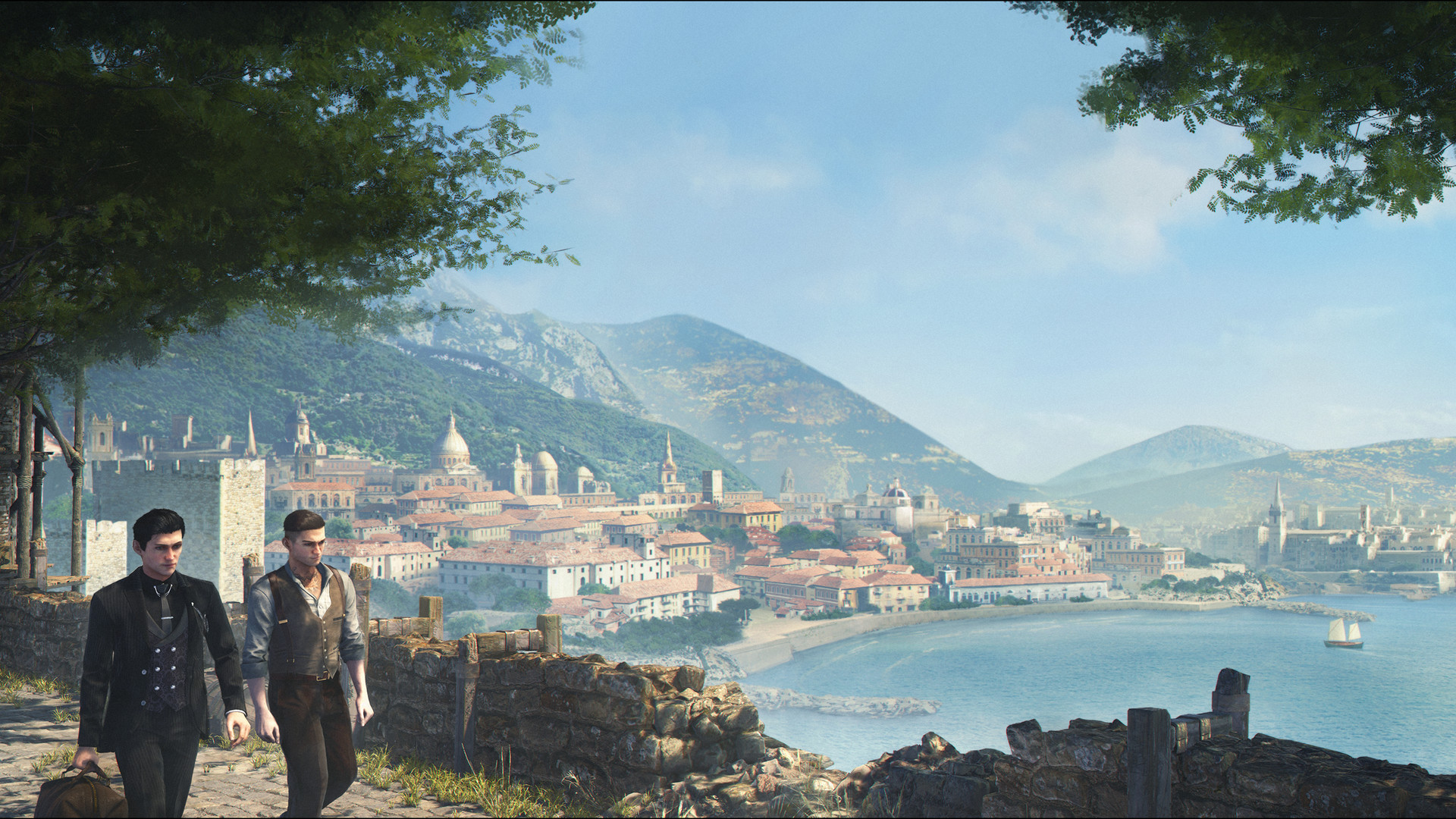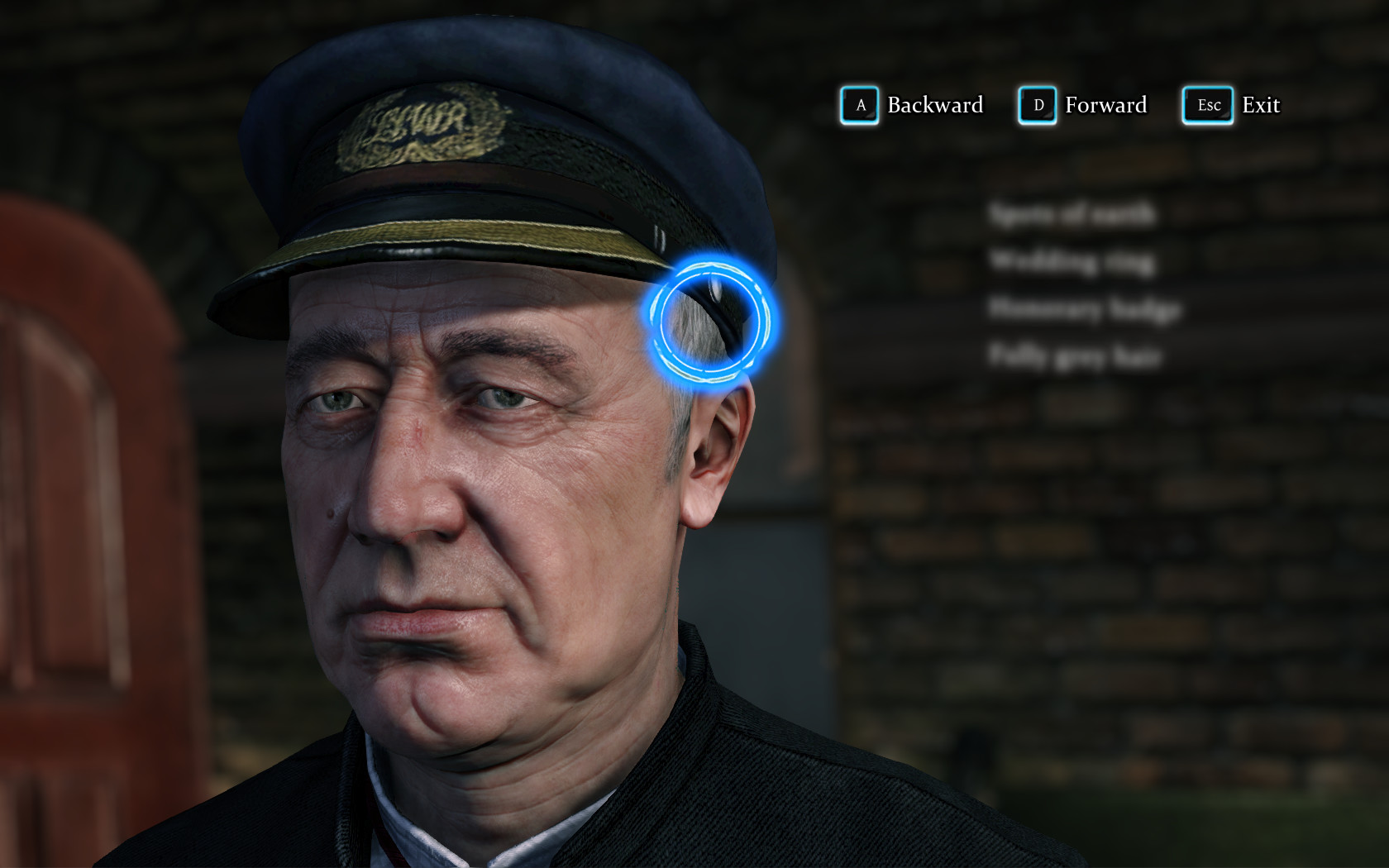They recently announced their next step in that endeavour: Sherlock Holmes Chapter One, a new game in the series due in 2021, and serving as a prequel to the rest. Set when Sherlock is 21-ish and exploring a Mediterranean island from his childhood, Chapter One will see tweaks to combat, detecting, and the addition of a more open world format. As a fan of the series and detectives in general, I was intrigued. And like any good gumshoe, I had questions. Frogwares? They had answers. Which Sergey Oganesyan, Producer and Comms Manager, gave me. He was actually very accommodating and shared loads of details, so it wasn’t too intense an interrogation. Chapter One explores what we might loosely call the Holmes origin story, including bits about the Holmes family, and telling us how Sherlock got to be, well, Sherlock, which might already be a death blow to the enthusiasm of hardcore Holmes fans. He even has a different sidekick, who is called Jonathan rather than John. Although he won’t just be an also-ran version of Watson, and if all goes to plan, he’ll have the potential to begin intensely disliking your version of Sherlock, depending on the actions you take.
“The strongest allure to a younger Sherlock is creative freedom,” says Oganesyan, via email. “There’s this big old blank ‘chapter’ in his life that we’re now able to go into and create our own story around. And that’s such a refreshing thing to be able to do with a character we’ve already explored so many times, without resorting to taking the character into scenarios or worlds we don’t really want to.” Holmes’ family isn’t touched upon much at all in the books. Even Sherlock himself basically springs to life as a 27-year-old man who keeps his tobacco in one of his slippers. For Frogwares’ purposes, it means that pretty much any events they imagine up to a certain date in his life cannot technically be said to be uncanonical, though Oganesyan assures me that they won’t be “turning Sherlock into a space pirate detective any time soon.” Mostly, this new approach to the story will allow them to create something “meaty, intricate and complicated”, but still plausible based on the man we know Sherlock will become. Chapter One won’t be just a case of “and that, kids, is why Sherlock likes solving crimes. Goodnight!” - it will explore things that are specific hallmarks of his later life and personality, like his fascination with the violin, or even his drug addiction.
While Conan-Doyle remains the main inspiration and source for the game, Oganesyan cites many other works and media that the team is drawing from, including Oliver Twist and Peter Pan, as well as philosophical doctrines such as Kant’s ethical theory and utilitarianism. The clash between these big ideas, and the process of Sherlock Holmes becoming Sherlock Holmes will, the hope is, be interesting for players to experience. At the same time, Holmes is transported from the pea-soupers and cobbled streets of London to a new, original setting in the time period. Oganesyan describes it as “a fictional, Mediterranean-style island where class divide, corruption and power politics pretty much built [the] society.” It’s not specifically under rule by any great power of the time, but has been influenced by settlers from Italy, Britain, France, North Africa - all over the place, in fact. Holmes grew up there for at least some of his childhood, and is back to “uncover the hazy truth behind the murder of his mother”. But despite growing up there, he’s treated like an outsider. Unlike previous games in the series, Chapter One’s world will be an open one, compared to the compartmentalised locations from the standalone investigations we’ve seen before. “We want a big part of the investigation to be about discovering clues and leads in a more natural way, through free roam exploration of multiple locations and areas,” explained Oganesyan. “These will range from our multicultural capital city with its contrasting districts and areas, right through to more secret or secluded areas on the island, as well as beaches, outposts, caves, mines, forests, etc..” Much of this design is based upon lessons learned from The Sinking City, Frogwares’ last game and a detective-y take on Lovecraft fish weirdness. I found it had some good ideas that got lost in a few proverbial weeds. “We now know it’s better to keep our open worlds more condensed and focused on the core mechanics of the game,” said Oganesyan, describing a world where the playing isn’t spending all their time running from one location to another, but instead interacting with the world itself, the characters and the investigations in it. “We are not pushing,” he said, “to create a sandbox with lots of different activities like, say, racing, fishing or gambling.”
This gesturing more towards Frogwares’ own take on interaction and detection sounds good to me. I do really love the classic Holmes mysteries, but if we’re all looking each other in the eye I think we can admit that most of the short stories are a bit rubbo when it comes to the thrill of detection. Honestly, there are way more that involve trained animals as murder weapons than could be reasonably expected. Frogwares, it seems to me, recognise which Holmes stories are the most popular: clue-laden but clever romps like Silver Blaze, the Three Students, and the good ol’ Hound Of The Baskervilles. The net result is that I often enjoy being Frog!Holmes, linking up different ideas in the big mind-map inside his clever head, much more than I enjoy reading about Real!Holmes. Another thing the devs learned from The Sinking City, however, is that players do appreciate the guiding hand letting go every now and then. There will be no info or UI elements that players might be used to, no GPS points leading you exactly where you need to go. No checklists on quests telling you what to do next. Ultimately, I felt that The Sinking City went a little too far in that direction, but the Holmes games were always circling around perfection with their systems, and I don’t want Frogwares to stop trying to find it. Chapter One is building upon the blocks already laid to create what they’re calling the Global Investigation System. “Ultimately, players need to feel they came to the conclusions themselves based on their thinking, and not because the game told them straight up where to go or what to do,” said Oganesyan. “If the game gives you the solutions step by step and you just have to arrive at the designated location, then it feels like you’re doing a rather heinous shopping list, not solving a mystery.” Instead, players will be given access to a suite of tools to use and experiment with as they see fit. These might include things like interrogations of witnesses or suspects, popping on disguises, crime scene sketches, a rumours system, or a “pinned evidence” system that allows you to focus on certain clues and see how they apply to the surrounding area. Oganesyan gives a made up example of how a scenario might play out, with the game giving you a natural hint but not pushing your nose in it: “Say you overhear a conversation about a certain harbour worker. You suspect he has valuable info, but you’ve tried approaching him once and he flat tells you to get lost. But while eavesdropping, you overhear this harbour worker was recently questioned by the police. Now, the game will never tell you “Find a policeman’s uniform and go question the harbour worker.” It’s up to you to come across this info naturally, find a police uniform, and decide to test if talking to the harbour worker while disguised as a policeman actually gives your next clue or just gets him to clam up even more.”
This will be combined with what Oganesyan says will be an “improved version of the ‘Mind Palace’ that [they] built for Sherlock Holmes: Crimes And Punishments”, allowing players to pursue different and sometimes incorrect leads, leading to different or sometimes incorrect conclusions for a case. That does have me excited, as finding a game that can make me actually feel like a detective is a bit of a White Whale for me, and its the Sherlock Holmes games to date that have consistently come closest. I do have my worries. Chapter One is adding in a bit of the old fisticuffs, or at least some form of combat that they’re not revealing too much about yet. I asked if it would be similar to the Robert Downey Jr. take on Holmes as a bare-knuckle boxing boy, and Oganesyan said I wasn’t actually that far off. Apparently, the fightliness will be more about Sherlock’s personality and agility, with no current plans for a stealth system, and will occur mostly at range, albeit with some cool melee take-downs. I confess, however, that I am prejudiced against a combat system being in the game at all. Holmes was good in a fight, but that’s not what most people imagine doing when they roleplay as The Great Detective, and the inclusion of a combat system in The Sinking City ended up being one of the most disappointing bits of that game for me. Still, I am prepared to give Frogwares some trust, here. They’ve proven they have a good idea of how to handle Sherlock, after all.



